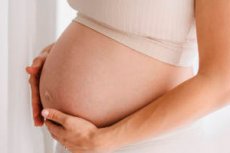New publications
Signs of preeclampsia are associated with an increased risk of early-onset dementia
Last reviewed: 02.07.2025

All iLive content is medically reviewed or fact checked to ensure as much factual accuracy as possible.
We have strict sourcing guidelines and only link to reputable media sites, academic research institutions and, whenever possible, medically peer reviewed studies. Note that the numbers in parentheses ([1], [2], etc.) are clickable links to these studies.
If you feel that any of our content is inaccurate, out-of-date, or otherwise questionable, please select it and press Ctrl + Enter.

People with preeclampsia have an increased risk of developing early-onset dementia, according to a study published in JAMA Network Open.
Valérie Olié, PhD, of Santé Publique in Saint-Maurice, France, and colleagues obtained data from the nationwide prospective Conception study, which included all births in France after 22 weeks of gestation between January 1, 2010, and December 31, 2018.
Individuals aged 30 years and older with no history of dementia who were followed from birth to December 31, 2021 were identified; 1,966,323 individuals were included in the analysis, less than 1 percent of whom developed dementia.
Dementia was defined as the principal diagnosis at hospitalization during a mean follow-up of 9.0 years. The researchers found that compared with pregnancies without hypertensive disorders, preeclampsia was associated with an increased risk of early-onset dementia (hazard ratio, 2.65).
When preeclampsia occurred before 34 weeks of gestation or was superimposed on chronic hypertension, the risk of early dementia was even higher (hazard ratios 4.15 and 4.76, respectively). Severe preeclampsia was not associated with early dementia.
"The results add early-onset preeclampsia to the list of lifelong risks of disease or medical consequences of having preeclampsia," the authors write.
